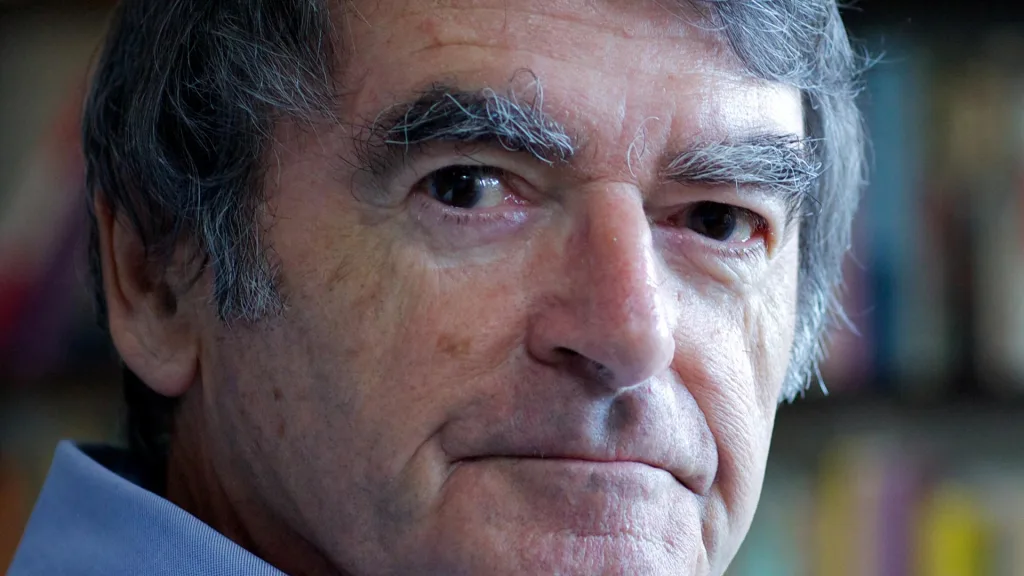British novelist David Lodge, who was shortlisted for the Booker Prize twice, has died at the age of 89, his publisher said on Friday.
The English author was best known for “Small World” and “Nice Work”, which were nominated for the prestigious literary award in the 1980s.
He died “peacefully” on New Year’s Day, Penguin Random House said, without giving a cause of death.
“His contribution to literary culture was immense, both in his criticism and through his masterful and iconic novels which have already become classics,” Lodge’s publisher, Liz Foley, said.
Lodge’s family said they were “very proud” of the writer, who was renowned for his plays, memoirs and TV scripts, as well as his books.
“Small World” (1984) and “Nice Work” (1988) came after “Changing Places” (1975) and made up his campus trilogy series about a fictional university called Rummidge.
It followed professors Philip Swallow from England and Morris Zapp from the United States and the cultural challenges they face when they swap universities for six months.
Lodge garnered a worldwide following for his comical, cynical take on middle-class life in more than a dozen novels, many mining the worlds of academia and Catholicism.
In 2008, the Guardian newspaper described him as “one of Britain’s best-loved comic writers”, while “A Clockwork Orange” author Anthony Burgess called Lodge “one of the best novelists of his generation”.
Lodge was born in southeast London on January 28, 1935, into a Catholic household. His father was a professional dance musician and his mother was a homemaker.
A gifted student, Lodge read literature at University College London, where he met fellow student Mary Jacob, whom he married in 1959.
‘Captured Britain perfectly’
A year later he took a teaching job at the University of Birmingham and published his first novel “The Picturegoers”, a multi-character social exploration set around a local cinema.
With his third novel, “The British Museum Is Falling Down” (1965), Lodge hit his stride with a well-received comic story of the life of a procrastinating student trying to work — and being endlessly distracted — in the British Museum’s reading room.
Ten years later, “Changing Places” introduced professors Swallow and Zapp.
The novel — which was inspired by Lodge’s own academic experience and a long study trip he had made to the United States — won the prestigious Hawthorn Prize and marked the beginning of his most popular and critically successful phase.
The New York Times called “Small World” an “exuberant, bawdy and wickedly satiric sequel”. The novel and “Nice Work”, which completed the trilogy, were both later adapted for television.
The books missed out on Booker prizes to Anita Brookner and Peter Carey respectively.
The Times of London described Lodge in 2018 as one of the prize’s “most notable unwinners”.
“Lodge will be read long after most of his peers for the simple reason that, in his early work, he captured Britain so perfectly,” The Guardian wrote in 2008 about the witty and wicked portraits of 1960s liberalism.
Lodge taught in the English department at the University of Birmingham between 1960 and 1987 before retiring to focus on writing.
As well as novels, Lodge wrote extensive literary criticism in academic journals, two fictional biographies — on authors Henry James and H. G. Wells — and two volumes of his memoirs.
Lodge continued to draw from his own life for fresh inspiration for his fiction, including his late onset deafness which is at the heart of his 13th novel, “Deaf Sentence” (2008).
“I have been rather cautious,” Lodge told The Guardian in 2008, explaining how he had found the time to write when he had also been working full-time in academia.
“I’ve stayed in one place. Having a stable married life is important. People who get into divorce, remarriage, custody and all that. It’s terribly consuming of time and energy.”
AFP

